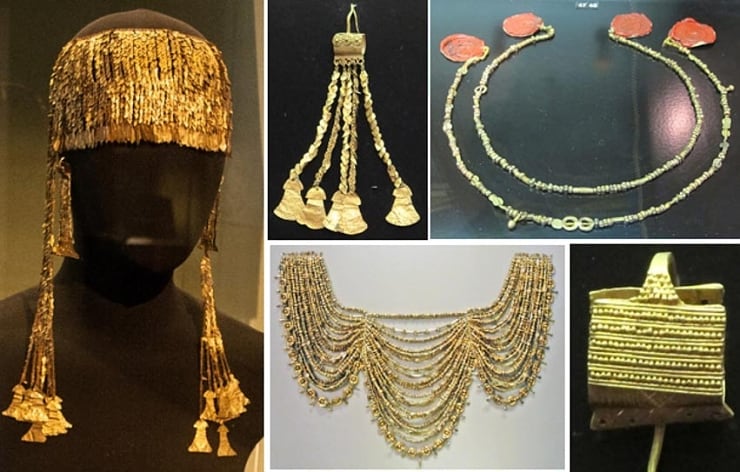Část toho pokladu se při rozpadu SSSR měla připadnout údajně ukrajině a stát se součástí zlatého pokladu státu.Ovšem po majdanu a útěku Janukoviče přistálo na ukrajině americké letadlo a odvezlo asi 40 tun zlata dopryč.A co ameriká zachrání,už nikdo nikdy nedostane spět.
21.4.1873 The Trade Handbook discovered the treasure of the King of Troy
Categories: Treasures , Calendar

First he made money and learned foreign languages. Even as a young boy, the merchant Heinrich Schliemann dreamed of discovering the Trojan treasure. Although some thought him a fool, he went for it, and in 1873 he fulfilled his childhood dream.
Schliemann was born on January 6, 1822 in Germany. From early childhood, he dreamed of discovering the mythical Troy of Homer. "For financial reasons, he only graduated from elementary school. His extraordinary strength of character and phenomenal linguistic ability caused him to independently fill in the gaps in his education. He mastered fourteen languages, including Latin and Greek. He developed a special method by which he mastered a foreign language in just a few weeks," wrote Agnieszka Stelmaszyk in her book Treasure from Atlantis.
He made a fortune first in Russia, where he worked. Next, he became rich thanks to the famous gold rush in California. Then he could start searching for his dream treasure. He found a home in Athens, where he also married Sofia Engastromenos. Together, between 1871 and 1882, they began excavations at Hisarlik in Asia Minor in what is now Turkey.
He surprised the world by excavating the foundations of Troy through all the ruins. "And he discovered the treasure of Priam, which consisted of more than eight thousand objects made of gold, silver and bronze. These included beautiful jewellery, utensils and weapons," Stelmaszykova wrote.
We also wrote about the treasure in detail here: Schliemann and the Gold of Troy Part 1, Schliemann and the Gold of Troy Part 2
The finder managed to take the treasure out of the Ottoman Empire. In 1881, Schliemann donated it to the German nation. Until the end of World War II, the treasure was in the Pergamon Museum in Berlin. When the Red Army came to town in 1945, they took the treasures to the Soviet Union. But for many years, it was not officially known where it was. It was not until 1993 that Moscow admitted that the treasure was stored in the Pushkin Museum's depository.
In 2013, archaeologist Jan Bouzek from Charles University commented on the treasure for Czech Television. He specialised in early Greek, Etruscan and Thracian archaeology. He has conducted numerous archaeological excavations abroad, including in Bulgaria, Greece, Lebanon and Sri Lanka, as well as in the Czech Republic.
"About two years ago I received four emails in quick succession. The first one was from the Germans, asking me to support the return of the treasure to Berlin. The second was from the Turks, saying that the Germans had stolen it and that it should be given to Turkey. The third was from the Greeks, saying it was a piece of Greek history, and never from the Turks. And the fourth from the Russians: when you return the icons and the amber chamber, we'll talk about it," the professor of classical archaeology said in 2013.
Sources: www.ceskatelevize.cz, www.ancient-origins.net, Agnieszka Stelmaszykova: Treasure from Atlantis
The article is included in categories:



